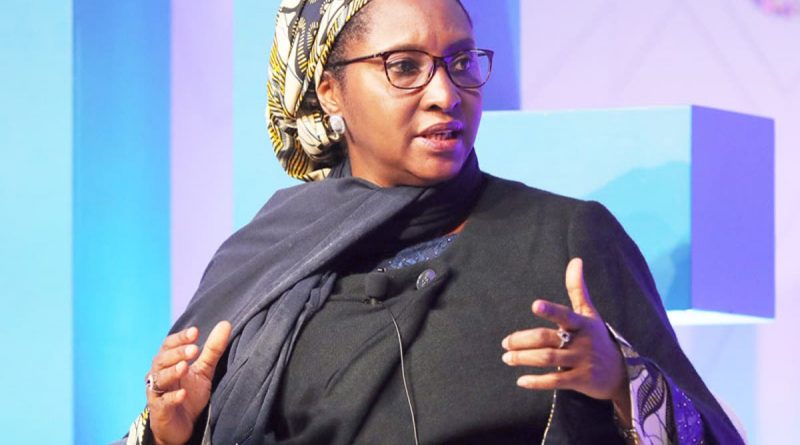Why Nigeria Can’t Stop Borrowing – Finance Minister

Mrs Zainab Ahmed, the minister of Budget and Planning has highlighted two key reasons that have made it inevitable for Nigeria to keep borrowing from external bodies.
Speaking at a webinar organised by the Nigerian Economic Summit Group, Fiscal Policy Roundtable and Tax Investment and Competitiveness Policy Commission on Saturday, she highlighted the reasons as the dual reality of COVID-19 pandemic and the drop in the price of oil in the international market.
She added that before the global health and economic challenges, Nigeria had been grappling with low revenue, noting that the crises had put the country in a difficult situation, which had made it difficult for the government to meet some of its obligations.
The minister, who was represented by the Special Adviser to the President on Finance and Economy, Mrs Sarah Alade, also added that more than 21 million jobs could also be affected by the impact of the pandemic.
Read Also: Zainab Ahmed: Nigeria’s new acting Minister of Finance (Some things to know about her)
She said, “We’ve had to grapple with low revenue, even before the pandemic. We had high debt, weak infrastructure base, low human capital and low revenue that is largely dependent on the foreign exchange earned from oil. So, there are many things we have loved to do that we cannot do.
“Due to the global economic slowdown and the revenue issues, what we are expecting is a GDP that would contract, in the best case scenario, by about 4.4 per cent and in the worst case scenario, it could be about eight per cent or more.
“We are in a very difficult situation but we are trying to manage that because if nothing is done, up to about 21 million jobs could also be affected by the impact of the pandemic. So, with all these statistics, we cannot overemphasise the importance of raising revenue.”
She added, “We also have the establishment of an N86bn intervention fund for health infrastructure; conversion of World Bank Regional disease surveillance system enhancement programme to support COVID-19 intervention in the states; accelerating infrastructural development; preparation of a Fiscal Stimulus Bill to provide legislative backing for the fiscal stimulus packages that we have; deregulation of the price of refined petroleum products – we know how important that is, given the amount of money that we spent in that area.
“We also have the adoption of financing plan for the power sector recovery programme; incentivising the use of up to N2tn of pension funds for roads and housing development, supporting and encouraging states to achieve state fiscal transparency and accountability, sustainability and other World Bank programme actions in order to access external support and we are collaborating with state governments on affordable mass housing.
“To achieve all these, we will have to keep mobilising external funding and seek debt relief. We continue to engage with the multilateral and donor agencies to access additional funding for crisis response, we seek moratorium from official partners for some of the loans that we have and support arrangement to secure commercial debt relief.
“If the revenue had performed, then we probably will not be seeking this much support from external sources, we know we cannot but keep working at generating more revenue so that the economy can be better for it.”

